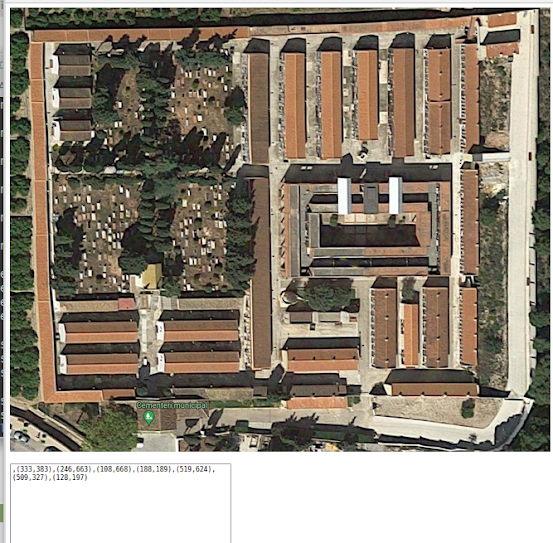04. Download (Files, Streams...). Show PDFs. Anchor problem, Iframes
1. Introduction
It is important to download resources from the web (PDFs, CSVs, images..)
Let's follow these steps:
2. Prerequisites: Add dependencies
1. Add the reference to Apache commons-io in the build.gradle file
/* * This file was generated by the Gradle 'init' task. * * This generated file contains a sample Java library project to get you started. * For more details take a look at the 'Building Java & JVM projects' chapter in the Gradle * User Manual available at https://docs.gradle.org/6.8/userguide/building_java_projects.html */ plugins { // Apply the java-library plugin for API and implementation separation. id 'java-library' id 'war' } repositories { // Use JCenter for resolving dependencies. jcenter() } dependencies { // Use JUnit test framework. testImplementation 'junit:junit:4.13' // JSP & SERVLETS compileOnly 'jakarta.servlet:jakarta.servlet-api:5.0.0' compileOnly 'jakarta.servlet.jsp:jakarta.servlet.jsp-api:3.0.0' implementation 'org.glassfish.web:jakarta.servlet.jsp.jstl:2.0.0' //Apache implementation 'commons-io:commons-io:2.11.0' }
3. Option (1): Using Form
2. Create a Servlet ("DownloadServlet") that opens a File stream and redirects to the ServletOutputStream
package ximojsp; import java.io.FileInputStream; import java.io.IOException; import java.io.PrintWriter; import java.nio.file.Files; import java.nio.file.Paths; import java.util.Arrays; import org.apache.commons.io.IOUtils; import jakarta.servlet.ServletException; import jakarta.servlet.ServletOutputStream; import jakarta.servlet.annotation.WebServlet; import jakarta.servlet.http.HttpServlet; import jakarta.servlet.http.HttpServletRequest; import jakarta.servlet.http.HttpServletResponse; /** * Dowload a resource */ @WebServlet("/downloadServlet") public class DownloadServlet extends HttpServlet { private static final long serialVersionUID = 1L; /** * @see HttpServlet#HttpServlet() */ public DownloadServlet() { super(); System.out.println("Creating Servlet"); // TODO Auto-generated constructor stub } /** * @see HttpServlet#doPost(HttpServletRequest request, HttpServletResponse * response) */ protected void doPost(HttpServletRequest request, HttpServletResponse response) throws ServletException, IOException { String fileName = request.getParameter("filep"); try {
response.setContentType("text/csv"); // or "application/pdf" response.setHeader("Content-disposition", "attachment; filename=hello.txt");
FileInputStream fileInputStream = new FileInputStream(fileName); ServletOutputStream outStrm=response.getOutputStream(); IOUtils.copy(fileInputStream, outStrm); outStrm.close(); } catch(Exception e) { e.printStackTrace(); PrintWriter writer = response.getWriter(); writer.println("<h1> Error downloading file </h1>"); writer.println("<h2> Could not download the file " + fileName +"</h1>"); writer.close(); } } }
To identify the content type and the name of file to be downloaded the look at the yellow highlited lines. (Take a look at Baelding for more details)
3. Create the index.html file to ask for the file
<!DOCTYPE html> <html> <head> <meta charset="UTF-8"> <title>User login form</title> </head> <body> <!-- <form action="login.jsp"> <form action="helloServlet" method="post"> --> <form action="downloadServlet" method="post" target="_blank">
Please insert file: <input type="text" name="filep" /> <input type="submit" value="Download File" /> </form> </body> </html>
You should type the full path to the file. The target="_blank" is used to download the file in another page.
It is important to notice this sentence
response.setContentType("text/csv"); // or "application/pdf"4. Option (2): Using an anchor instead of a form
The href of the anchor can only make requests with the method "get", so in the servlet should be added this method:
/** * Needed for href (only uses get) */ public void doGet(HttpServletRequest request, HttpServletResponse response) throws ServletException, IOException { doPost(request, response); }
The anchor element can be
<p><a id="myAnchor" href="downloadServlet?myIds=(1,2,3,4,5)" target="_blank"> prova link</a></p>
Where ?myIds=(1,2,3,4,5) indicates a parameter that is not used in this case (only for exposing how to send parameters a request with method get)
If you want to download the file by clicking the anchor programmatically, take care! see Wolfss in stackoverflow ...
$('#myAnchor')[0].click(); //This is working!! Note the "[0]"
You can use a button and by means of jquery, execute a click event on the anchor
The target of the anchor can be the id of an iframe instead of "_blank";
5. Option (3): Using an iframe
The "src" of the iframe has call to the servlet
<p><iframe="myIframe" src="downloadServlet?myIds=(1,2,3,4,5)"></iframe></p>


Comentarios
Publicar un comentario